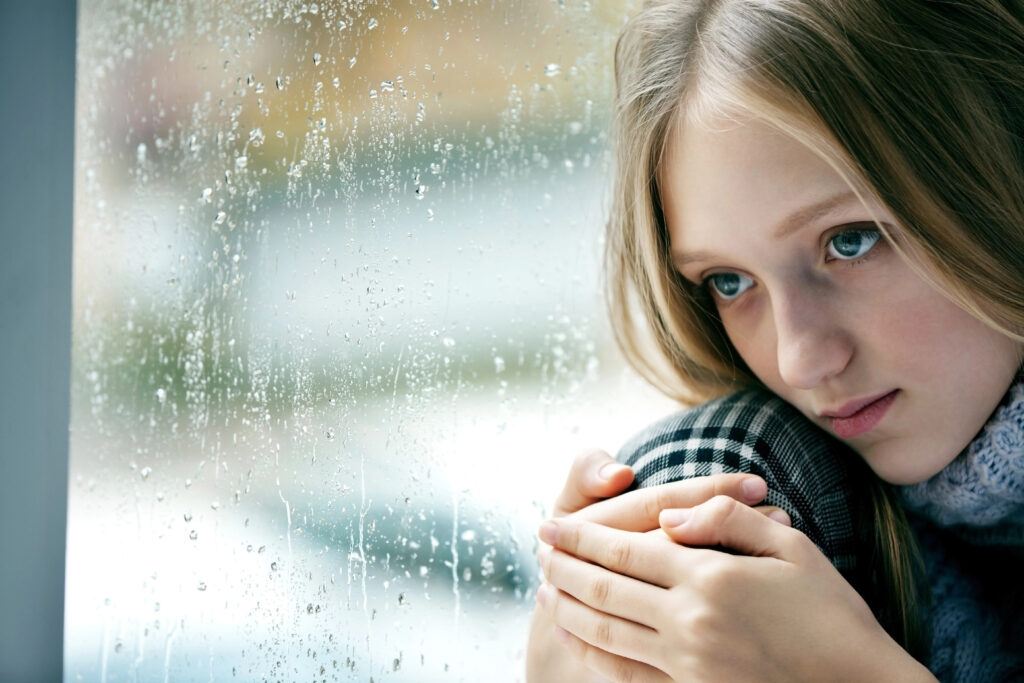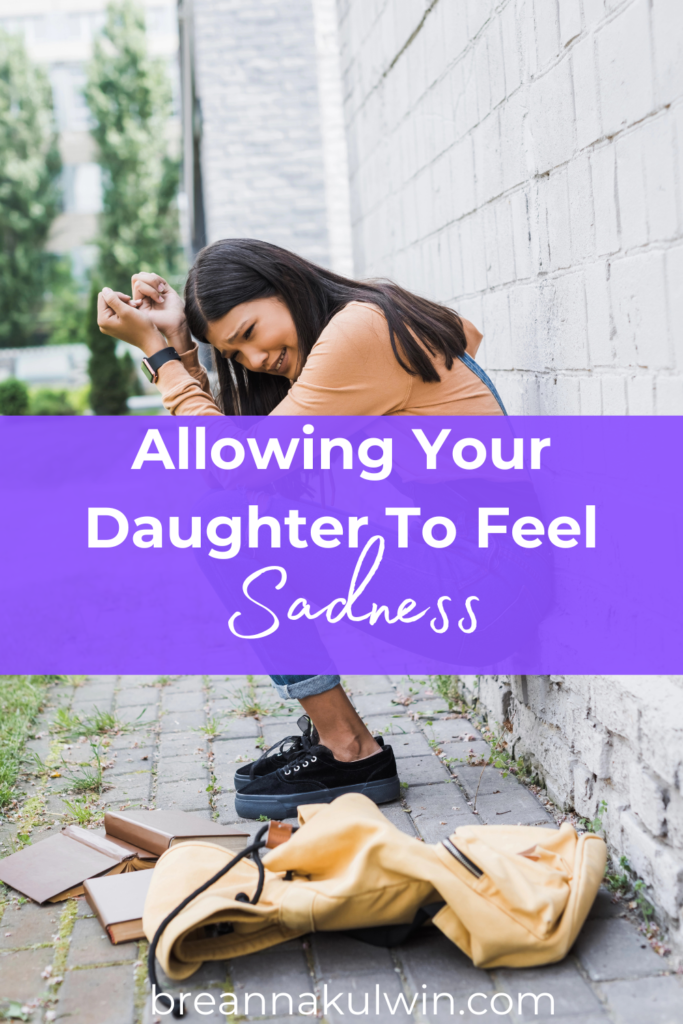Allowing Your Teen To Feel Sadness
Sadness is such an important emotion to feel. But humans tend to avoid it like the plague. We don’t want to cry, break down, or grieve our losses because often the pain feels too intense to bear.

So instead, we suppress, numb, and avoid our pain, never letting the tidal waves of sadness pass through us. 🌊
This leaves us living in a chronic state of dull, aching pain that never washes away, because instead of just feeling sad during a moment in time, we live in it. 😣
When we suppress our sadness, we’re not just avoiding temporary discomfort.
Do you know what we’re actually doing?
We’re setting ourselves up for long-term consequences and they will normally show up as one of these 3 things listed below:
- Persistent Emotional Numbness: Avoiding our sadness leads to a broader emotional numbness. By suppressing the pain, we also dull our ability to experience positive emotions like joy, excitement, and love. This emotional flatness prevents us from fully engaging with life, making everything seem less vibrant and meaningful. Instead of feeling occasional sadness, we end up in a constant state of emotional limbo.
- Physical and Mental Health Consequences: Unprocessed emotions don’t just disappear; they manifest in our bodies and minds in harmful ways. Chronic suppression of sadness can lead to increased stress levels, anxiety, depression, and physical symptoms such as headaches, digestive issues, and fatigue. Our bodies hold onto the unresolved pain, which can eventually weaken our immune system and overall health, making us more susceptible to illnesses.
- Impacts on Relationships: Our unaddressed sadness can create barriers in our relationships with others. It can make us more irritable, withdrawn, and less capable of forming meaningful connections. This emotional distance can lead to misunderstandings and conflicts with loved ones, creating a cycle of isolation and loneliness. When we are not fully present emotionally, our relationships suffer, and we miss out on the support and love that could help us heal.
And with this, can you imagine how these 3 major issues affect various aspects of our lives.
Now imagine how this affects your daughter and her growth. In order to move through it and create success, we need to understand it and how to move forward.
Understanding Depression and Suppression of Emotions
Are there unprocessed emotions that your daughter is sitting with?
I’ve had people tell me their child has shut down and not really participated in life. The emotional distance and sadness their parents can see but can’t really understand happens more than you think.
Is this happening to your daughter?
This is depression. Suppression of emotions. This is not how we want young people (or anyone, for that matter) to experience sadness.
No emotion is bigger than your daughter. No emotion can be suppressed forever. No emotion will go away on its own. It will show up someway, somehow, until it is felt.
The truth is that we don’t know HOW it will show up. Sometimes it’s destructive behavior.
Sometimes it is shutting down.
Your daughter needs to FEEL it and RELEASE it, so she doesn’t have to continue numbing it to live with it. This is the work. ❤️🩹
And if your daughter is numbing her emotions that feel too painful to feel, she can only do that for so long.
Then the cutting happens.
The eating disorder.
The suicidal thoughts.
Then there’s the vaping.
The pot smoking.
The suicide attempts.
All in an attempt not to feel the pain. I’ve got news for you….it doesn’t have to take years of bad therapy, med trial after trial like some guinea pig, to figure all this out.
It’s time to challenge what we consider “normal” modes of help.
Challenging the Current Mental Health System
The biggest reason we need to challenge the mental health system is to help figure out what your daughter needs…
And let me be clear, it’s not because she’s chemically imbalanced. It’s not because she’s got a broken brain.
It’s not because she inherited depression or anxiety from the family lineage.
It’s not because she’s got a bad hand in life. If your daughter is cutting, it doesn’t have to be that way. If your daughter has an eating disorder, it doesn’t have to be that way. If your daughter hates herself, it doesn’t have to be that way. If your daughter doesn’t want to be alive, it doesn’t have to be that way.
Let’s look at mental health completely differently. Isn’t it time? For your daughter’s sake.
Challenge the system.
Did you know that psychiatrists do not get one ounce of education on trauma and how it impacts the brain.
No training on how it impacts mental health.
None, zilch, nothing.
When you brought your daughter to the pediatrician or family doctor, before they put her on meds, did they ask her what happened to her?
What trauma she’s been through?
Did they hold space for her to start to feel and process?
When you bring your daughter to therapy, are they doing the real healing, or just talking about her week with no tangible solutions to move forward in her life? Or no real healing from her past pain and trauma? Challenge the system. It’s beyond broken. It goes way deeper than treating a bunch of symptoms with band-aids.
Wouldn’t it be better for her to learn how to experience life in a healthy way, how to feel a range of emotions in a healthy way, vs. going on meds for the rest of her life that just do more numbing, not healing?
If you have a daughter in her teens or twenties who is ready to learn healthy ways to feel and process her emotions… so that they stop taking over her life, watch my masterclass here to learn more about my coaching approach.

